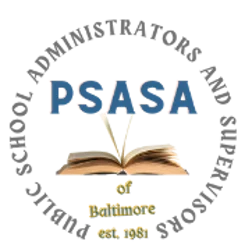In the bustling metropolis of Metroville, where superheroes soared through the skies and fought crime with unwavering determination, even the mightiest among them can't escape the everyday challenges of being human. As we open 2024, every school leader should find a way to create some personal time. Running a 24/7 clock is not a healthy way to operate.
Long hours, tight deadlines and the pressure to perform can contribute to stress, burnout and diminished cognitive function. In response, professionals from various fields are urging a paradigm shift, emphasizing that regular breaks are not a luxury—but are a necessity for sustained success.
"Amid the myriad responsibilities and challenges that school leaders face on a daily basis, it is easy to overlook the need for personal well-being. However, recent studies and anecdotal evidence I hear every day has highlighted the correlation between the well-being of school leaders and the overall success of their schools," said AFSA President Leonard P. Pugliese. "As a former school leader, I know the mental health and well-being of school leaders are closely tied to the overall school climate. When leaders can manage stress and maintain a healthy work-life balance, they are more likely to create a positive and supportive atmosphere within their schools. This, in turn, has a ripple effect on the teachers, students and the entire educational community."
There was a panel covering this topic at the AFSA Convention in 2022:
“In order to care for their schools, staff and students in a time of crisis, administrators must first care for themselves,” said David J Schonfeld, M.D., director of the National Center for School Crisis and Bereavement. “Even superheroes have to attend to personal needs.”
Schonfeld clarified that taking care of yourself as a school administrator does not mean putting too much of a burden on yourself to provide your own “self-care,” but instead relying on institutional supports.
Alma Lopez, the 2022 American School Counselor Association school counselor of the year, adds that administrators should “know that school counselors and school psychologists are there for you and are trained to help you” in a time of crisis or grief.
That help should not be limited to times of crisis alone, however; Dr. Schonfeld emphasized that “just-in-time training is not ‘in time.’” School leaders should prepare for times of crisis by organizing their institutional supports, receiving training on how to handle crisis situations before they occur and creating an individualized, professional self-care plan that does not place a heavy burden on administrators.
Only after school administrators have received adequate care for themselves can they effectively lead their school and their community through a time of crisis or grieving.
Clarence Allen, a school principal in Newark, New Jersey, and member of the City Association of Supervisors and Administrators, AFSA Local 20, recommends that administrators speak openly and honestly with their staff in times of crisis, checking on how they are feeling and what they are thinking, and reminding them not to be hesitate to ask for help.

